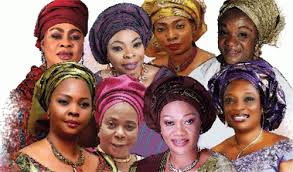It’s election season in Nigeria, but where are the women? Screams a headline on the UN Women website.
Sequel to the February 16 presidential elections, UN Women and partners trained women candidates, documenting political violence and advocating for measures to boost women’s low representation in Parliament.
Did many Nigerian women eventually contest for the 2019 elections? The answer is in the Negative. But the few who made attempts have sour stories to tell. That is those who survived it.
Women were attacked, threatened with violence and forced to give up their places to men during the party primaries. Some party leaders pressured women to step down, while others irregularly removed winning women’s names from their lists of candidates submitted to the Independent National Electoral Commission (INEC).
INEC said only 62 women out of the 2,970 who contested for different political offices in the 2019 general elections were elected

Only about 18 Women are at the 9th National Assembly. The men are 451.
To underscore the situation, Mufuliat Fijabi, head of the Nigerian Women’s Trust Fund, an advocacy group in Abuja, said: “Nigeria is still strictly a patriarchal society and most times we find people paying lip service to the advancement of women political participation.’’
A number of women were assaulted. One was burnt alive. Natasha Akpoti was pushed down thrice during a meeting held at the instance of INEC while law enforcement operatives in that meeting did nothing. Several others have their story.
Mrs Salome Abuh, women leader of the Peoples Democratic Party (PDP) in Kogi State was set ablaze in her house on November 18, shortly after the announcement of the Kogi State governorship poll result, which the ruling All Progressives Congress (APC) won.
Meanwhile, the Universal Declaration on Democracy adopted by the Inter-Parliamentary Union in September 1997 states that: “The achievement of democracy presupposes a genuine partnership between men and women in the conduct of the affairs of society in which they work in equality and complementarity, drawing mutual enrichment from their differences.”
While this scenario persists in Nigeria, other countries are moving ahead; including Nigeians there.
Nigerian-born Chinyelu Onwurah won the first seat to be declared for Labour in the December 12 general election in the United Kingdom.
According to The Independent, Onwurah took Newcastle-upon-Tyne Central with 21,568 votes, compared to her Conservatives rival’s 9,290.
Onwurah’s victory was swiftly followed by success for Labour’s Bridget Phillipson in Houghton and Sunderland South.
Onwurah’s 12,278 margin of victory was down from 14,937 two years ago, the medium reported.
Also, the election witnessed a landmark victory for women in the UK as a record 221 women won seats as members of the Parliament.
As the UK celebrates the rise of women in its politics, recall Finland has also elected its third female Prime Minister, Ms. Sanna Marin.
34-year-old Marin, who was sworn into office on Monday December 10, is the youngest prime minister in Finland’s history, and the youngest sitting head of government in the world.
Before her, the New Zealand’s Jacinda Ardern, who was 37 years old when she took office in October 2017 used to be youngest head of state in the world.
Marin, who belongs to the Social Democratic Party of Finland, will form a coalition government with four other parties, which are also led by women, three of whom are younger than 35 meaning her cabinet will be dominated by young women.
Katri Kulmuni, 32, head of the Centre Party, will take on the role of Finance Minister, while Maria Ohisalo, 34, of the Green League, will serve as Finland’s Interior Minister.
Rounding up the female-dominated cabinet will be Left Alliance chairwoman Li Andersson, 32, as the Education Minister, and Swedish People’s Party leader Anna-Maja Henriksson, 55, who will be serving as the country’s Justice Minister.
Whither way Nigeria?